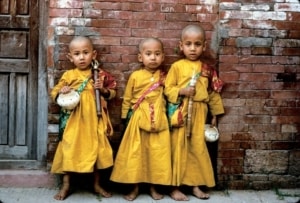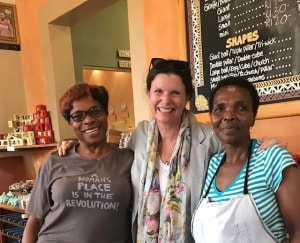It was August 1996 and I was in Bosnia, working as a United Nations volunteer election supervisor. Another supervisor and I were assigned to oversee several polling stations in the first elections since the war had ended the previous December. My partner, also an American, wanted to buy some sundries at the local U.S. Army PX. He asked me if I would join him on a walk to the Army base located near Zivinice, Bosnia. I reluctantly said yes.
I had arrived in Bosnia a few days before our walk. The trip from my California home had been filled with nervous anticipation. I was apprehensive about the assignment. The Bosnian war had been particularly brutal and destructive, and I was unsure of the circumstances on the ground. The flight from a devastated Sarajevo to Tuzla Air Base on a military C-130 added to the anxiety.
At the air base, we received a security briefing from the U.S. Army. Included in that briefing was a vivid and horrifying presentation of the danger posed by omnipresent land mines in the area in which we were about to serve. The tough sergeant leading the presentation repeatedly warned us of the dangers of traveling on dirt roads. They had not all been cleared of land mines and were very dangerous. Hence my concern about walking in unfamiliar territory.
Nevertheless, my partner and I set off on our quest. We had some memory of the roads as our driver had taken us on an orientation tour of the area—but we were soon lost. We had taken a wrong turn and ended up on a narrow and strange rural dirt road, the tough sergeant’s words ringing in our ears.
The area was pleasant enough for a place so recently wracked by war. Gently rolling hills, cattle grazing peacefully. Inverted cone-shaped haystacks, so unique to the Balkans, were sprinkled about the wire-fenced fields. We passed silent farmhouses with red-tiled roofs. The late summer light gave the countryside a golden glow. But our apprehension remained.
About 20 minutes into our walk on that rural road, I noticed a group of Muslim schoolboys coming toward us. Carrying backpacks, they were chatting away and playfully pushing and shoving each other as schoolboys do the world over. When the boys got within hailing distance, I wished them a good afternoon in their language. They were so involved in their chatter that they did not respond and walked on.
A few minutes later, two young Muslim girls about 10 years old approached us on the road. One of the girls was eating from a bunch of grapes. They, too, were chatting away – happily enjoying the day and each other. I wished them a good afternoon. They looked up and both wished me the same. We continued along on our separate journeys.
Shortly I heard the sound of running footsteps coming up behind me. I turned and saw one of the little girls was trying to catch up with me. It was the girl with the grapes. I stopped. The pretty blond girl came up to me and looked up with her striking blue eyes. She shyly raised her hands, took her small bunch of grapes, split it in two, and gave me one of the halves. She then smiled, turned, and merrily ran back to rejoin her friend.
To say I was touched is to understate the moment. My thoughts were that the little girl had just lived through a war that had devastated her country. She had heard the sound of artillery shells whistling overhead on the way to kill and maim. She had no doubt huddled with her family, filled with a stark fear of unknown assailants’ bent on destruction, in a war that she didn’t understand. But the terrifying experiences did not defeat that little girl’s innate humanity and giving heart. The war had not destroyed the kindness and goodness that was within her. She took the time to share with a foreign stranger on that summer afternoon.
I think of that little girl often. Especially when I read reports about the hatred in today’s world. I never saw her again, but I will see her forever. Those pretty blue eyes. Her shy gesture reaching up to share her grapes. The beautiful smile on her youthful face. Watching her joyously running back to join her friend. These thoughts remain—thoughts of a poignant encounter with a little Muslim girl’s transcendent humanity in a troubled world.




